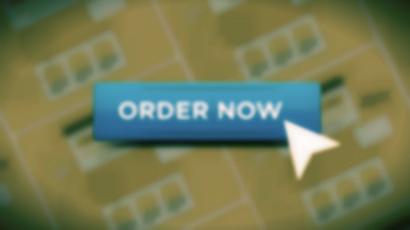| |
Interviewing an Expert For a
Teleseminar or Webinar? Avoid These 6 Mistakes
by Marcia Yudkin
Recording an interviewing an expert on a topic that has value for a group of listeners is one of the quickest and easiest ways to create a saleable product. This sort of teleseminar
or webinar can also help drum up interest in an upcoming event as a free preview call.
However, as someone who has been interviewed or interviewed others dozens of times and listened to scores more expert interviews, I’ve observed several pitfalls that can affect the quality of the product.
|
Learn to Present
Teleseminars Comfortably and
Profitably
My online course, Teleteach for
Profit, gives you the straight
scoop on what you should and shouldn't do in your teleseminar program and why.
As a novice, you'll go from feeling nervous about leading an audio session to using teleseminars
confidently for generating prospective customers or as a profit center in
themselves.
Course details. |

Teleteach for Profit Course |
|
To end up with a recording that people feel good about having paid for, avoid making the following mistakes when you interview experts, either during a live teleseminar with listeners on the line or when just you and the expert are on the line for later distribution of your conversation.
1. Talking too much. As the interviewer, you should be talking no more than 20 percent of the time. It’s fine to offer occasional observations that add to and round out what the expert has said. But it’s rude to both the expert and the listeners to horn in on his expertise by running off at the mouth. However much you also know about the subject at hand, your role is subsidiary here. Write the following two words in big letters in front of you as a reminder: SHUT UP. If you just can’t be quiet, reverse your role and find someone to interview you.
2. Not introducing the expert. Some interviewers either say outright, “So-and-so needs no introduction” or act as if everyone listening knows the stature and credentials of the guest expert. Yet even people who paid to be on a call and presumably read your sales copy might not remember the expert’s qualifications or might be new to the circles in which your expert is a living legend. Always provide at least a brief bio of the expert to set the context for your questions.
3. Gushing. It’s painful to listen to someone who responds to every other point of the expert by praising him or her to the sky. Instead of flowery or overly emotional flattery, be sparing and specific in your praise. Rather than “Wow, that’s another incredibly insightful point,” for instance, you can say “That’s something most gurus don’t tell you,” or “I would never have guessed that,” or “I see I’m going to have to make some changes after we finish today’s call.” Let listeners make up their own minds about the value of the expert’s savvy for them.
4. Lousy questions. Good questions are open-ended ones that call for an explanation, anecdote or perspective of some sort rather than a simple yes or no. Avoid multi-part questions, because inevitably one of the parts gets lost in the expert’s answer, confusing or disappointing listeners.
5. Getting off track. As interviewer, you are responsible to keep the discussion on track. However interesting a side issue might be, you can’t let it get in the way of what you advertised would be covered in the call. Good phrases for reining in a digression include “But to get back to our topic for tonight…” or “I’m not sure we have time to get into that. Do you have any more ideas about ___ [the central topic]?”
6. Not providing URLs. Sometimes during a preview call that is promoting an upcoming paid event, the expert mentions valuable information available on the expert’s web site, but the interviewer fails to prompt the expert to provide the web address so listeners can access it. This gets listeners feeling like the interviewer cares only about the event selling out and not about helping listeners. Listeners deserve to receive sufficient information to follow up with the expert directly or check out his or her books or web site.
By following these guidelines, you provide a solid educational experience for listeners, treat your expert with respect and are positioned well to receive the payoff that you planned for the teleseminar project.
Copyright 2013
Marcia Yudkin. All rights reserved.
|







